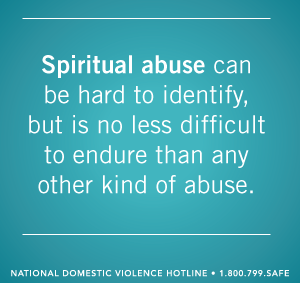(Apologies to Alan Bennett)

An offering to Surviving Church from an anonymous contributor who speaks of the Kafkaesque experience of being at the wrong end of a Church of England Core Group
First they came for the socialists, and I did not speak out—
Because I was not a socialist.
Then they came for the trade unionists, and I did not speak out—
Because I was not a trade unionist.
Then they came for the Jews, and I did not speak out—
Because I was not a Jew.
Then they came for me—and there was no one left to speak for me.
‘First They Came’ is the oft-quoted and adapted poetic form of the post-war confession in 1946, from the German Lutheran Pastor Martin Niemöller. His confession was about the cowardice of intellectuals, Christians and most clergy for saying nothing in the face of injustice, even when it was right in front of them, in plain sight. They all chose to look away. This included, and by his own admission, Niemöller himself. Niemöller’s prose raises two questions for us today. First, who are they? Second, who are we? In what I describe below I seek to address that question. I write anonymously, but I do so autobiographically, with some details changed.
——————————————————————————————————-
They wrote to tell me that they had formed a Core Group. It was all about me, apparently, and my ‘practices’. Not now, of course. But something done or not done in the past. The person writing told me that they couldn’t say anymore at this stage. They had decided I would have to be investigated. They couldn’t tell me what it was about in detail. I would understand that they had to maintain their confidentiality.
They told me to step back from a number of duties, voluntarily. Or I would be punished with some suspension. They told me this was non-negotiable, but they were just asking. Nicely. But that if I didn’t comply, there would be trouble.
They told me they would allocate me some support. They had selected someone for me. I was in too much shock to take notice. This person, they said, would help me. With what, I asked? At this stage, they said, they could not say anything further. But they had allocated me some support. Did they know anything, I asked? No, they said. The support person was picked for me, but remains outside the ‘process’.
Then they sent a letter. There would be a statement on the website and an agreed announcement about the process I ‘had agreed to enter into’. But I protested, I hadn’t ‘agreed’ to anything. I’d been given no choice: forced. They replied I did have a choice. Comply, or lose your job, they said. I asked who wrote the statement? They said the Core Group had ‘agreed it’, and that there was nothing I could do about it.
The letter, they said, would be helpful. It wasn’t. It outlined some specimen ‘accusations’ against me, and told me this meant I would be categorised as a ‘risk’ for the time being. But I was not to worry. Being suspended was a purely ‘neutral act’ – it did not imply any guilt on my part. This was merely a ‘routine’ process, so I should not be concerned about my reputation. They told me I could not talk to anyone about what was happening. That I had to keep this confidential. That I was not allowed to say anything about this to anyone.
I asked if I could have an advocate – some legal advice, perhaps? They said that would not be necessary. They said I was not ‘on trial’ in this process. Although, they did add that if the ‘investigation’ concluded that I was a ‘risk’, then I could lose my role, home and livelihood. I asked if I would have input into that decision? They said that would be a matter for the Core Group. They added that I could take my own legal advice – if I wanted. But at my expense, of course.
I asked, who was on the Core Group? They could not say at this stage: it was confidential. I asked how the Core Group was formed? They could not say, as it was confidential to the Core Group. I asked if it was free from conflicts of interest, bias, or people using it for vindictive purposes, or making vexatious and ruinous allegations? They said the Core Group managed these things, and there was a process. I asked if I could see a transcript or details of what I was accused of? They said that was confidential to the Core Group. I asked if there was a process of appeal, or perhaps a complaint process? They told me they would think about that.
I asked what would happen if they got things wrong? They seemed puzzled by this question. The process was agreed. The Core Group had met. Accusations and allegations had been made. There would have to be an investigation. Surely, they said, I could see they had to continue with their process until it was completed?
I told them that some people committed suicide when faced with the shaming of such allegations and accusations. Many people who did not take their own lives became depressed instead, and signed off sick. Or just resigned. Or both. It could take years to recover from the trauma of being falsely accused. Reputations might never be restored. They said nothing. So I asked again. They still did not answer. I asked again. They reminded me that they had allocated me a support person. If I did not want the one they allocated, I could choose my own. That was it, they said.
I told them that this could be financially ruinous for me. They said, ‘the process must come first. We cannot run this around concerns for you, your wellbeing, welfare reputation or your family. Victims must come first!’. I said that there weren’t any victims. No-one had complained. That this was all made up, and just malicious.
They just said that everybody had to be treated the same, and there could be no special pleading. I had to be investigated in the same way as anyone else who ‘potentially posed a risk’. Could I not see that this was ‘fair’?
I protested. Fair on who, or what, I asked? Do I have to prove my innocence, lest I be presumed guilty? Are we not all ‘potential risks’? I could not see any fairness in their process. I could see no transparency, accountability or truthfulness. I could not see any evidence of concern for me, due process, or for the interests of the victims or survivors of abuse. They said that the church had to ‘look like it was doing the right thing’. It can’t be seen to be letting some people off lightly.
So I gave them a list of people who they had already let off lightly. Or in some cases, had decided to not investigate at all. These people were all known abusers. They had caused untold damage to dozens, even hundreds of people. Over many decades. People had known about their abuse for years. But nothing had been done to them, or to the people who knew about it. So I asked, why was I being singled out?
They did not answer. They said that each Core Group came to its own conclusions. That they could not comment on individual cases. That if no investigation of a known abuser had taken place, there must have been good reasons in the process for this to have been decided at the time. The fact that these people were eventually found to be abusers, and had now been named was, of course, ‘regrettable’.
I asked if there was ever any apology for the victims in these cases? They said that if they had decided not to investigate such people then, they could not possibly be held responsible for the actions of abusers now, or for what they had done to their victims. They said that was ‘obvious’.
I asked them why they put out a media statement about me, but not about others who were being ‘investigated’? That was a Core Group decision, they told me. So I asked who made decisions about who was to be named and shamed, and who was to be shielded from any exposure to the media? There was no answer.
I asked again. They told me these decisions were made on a case-by-case basis. They ‘reassured’ me that there was no hidden ‘agenda’ against me. Everything that was done, is being done, and will be done to you, is done for the sake of the victims and survivors, who ‘must come first’, they said.
I said, ‘it looks like you are just protecting your own reputation here…I mean, you throw a few people to the wolves to make it look like you have got robust structures, but you just operate secretly and with no sense of accountability or justice…’. Again, they did not answer me.
So I went to the bible, and I read them these words from Nicodemus in the Gospel of John (7: 51): “Does our law seriously judge people without first giving them a hearing to find out the facts, and discover what they are doing?” I said that word “seriously” like John McEnroe did – a kind of shouted, sarcastic, sulky squeal.
They didn’t like this. I knew that, because by now I had figured out that anything they didn’t like, or any question they didn’t want to answer, meant that they just kept silent. They did not need to speak to me, or answer me. They are not answerable to anyone. They are unaccountable.
They could do what they liked with me and to me. The process allowed them to suspend me; to recommend my removal; to name and shame me; to draw on evidence against me, but refuse to hear evidence or testimony for me. They could go after anyone they liked. No-one was above them.
I asked, ‘seriously…how is any justice served by this?’. They just told me that they operated with their own processes. They were not like healthcare, government, social care or other bodies. So, they did not need to follow the good practices of other organisations and institutions, because they were not like them. They did not need to operate justly or fairly, because they self-audited, judged themselves, and worked with their own standards and protocols. This all worked well for them, they said.
I asked them about all the illness and trauma they were causing me. I mentioned the sleepless nights, the stress to my family, the medication, the financial costs and the reputational damage they were inflicting. They said ‘we can see that this must be a difficult time for you’. But they said nothing more. And they did nothing more. They carried on with their process.
I no longer know what they are doing. I know nothing about the new Core Group they set up to investigate me. I don’t know who they are. I don’t know if they are doing this to me deliberately to cause me harm, or because they are incompetent, and too proud to admit their failings. But I do know that I no longer trust them. I do know that I no longer believe them. I do know that none of their statements can be taken at face value anymore. I do know that they are bungling – but also dangerous. I do know that when your church hierarchy can’t be trusted any longer, something deeply corrupt has taken root in that body.
As I reflect, I wonder how we ever arrived at this sorry state of affairs. When you can’t believe and trust your bishops and other high-ranking officials in the church, because they cannot demonstrate truthfulness, transparency and fairness, what is left for us? Just questions, I think. And a group of people – I have only referred to them as ‘they’ – who don’t answer to anyone, or think they need to answer anything.
That question comes round again: “Does our law seriously judge people without first giving them a hearing to find out the facts, and discover what they are doing?” Poor Nicodemus. He never got an answer from the Pharisees and Sadducees. Nor would Nicodemus get one from our church today. Authorities know how to keep silences – that is their main mode of violence.
They had pursued others before me; but I said nothing. I assumed the authorities knew what they were doing then; that they must be right. In getting rid of these others, it showed they must have done something wrong to deserve such treatment. But then they came for me.
They may come for you too. Who are they? Who are we? I am not longer very sure. But please remember this: I have warned you.








